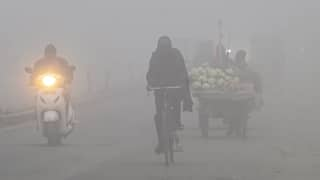Hair Care: Know What Causes Dry, Itchy Scalp And How To Deal With It
Dry scalp is likely to occur when your scalp is not producing enough, or adequately replacing, sebum (oil) – which tends to happen as we get older.

It can be difficult to think about anything else when your scalp itches. The itch may seem interminable, but relief is possible. Finding out why your scalp itches is the first step in getting rid of it. Dry scalp is likely to occur when your scalp is not producing enough, or adequately replacing, sebum (oil) – which tends to happen as we get older. We have enough sebaceous glands on our scalp to keep the scalp lubricated so if the scalp is dry, then there is most probably an underlying cause.
Causes Of Dry And Itchy Scalp:
Talking about the casues behind dry and itchy scalp, Dr. Gitika Sanodia Biyani, Dermatologist, Cosmologist & Tricologist at Dr. LH Hiranandani Hospital, Powai, Mumbai said, "Dry and itchy scalp, from a dermatologist's point of view, is due to a combination of intrinsic and extrinsic factors that disturb the balance of the scalp."
"Intrinsic factors include a genetic predisposition and underlying skin conditions such as eczema, psoriasis and seborrheic dermatitis that lead to inflammation, scaling and increased sensitivity. On the other hand, extrinsic factors include environmental conditions such as low humidity, cold weather and excessive heat styling, which affect the scalp's natural moisture balance," she further went on to say.
Dr. Gitika went on to discuss other factors as well that results in dry and itchy scalp.
She said, "Insufficient sebum production, influenced by hormonal changes or the ageing process, can further exacerbate dryness. In addition, improper hair care practices such as infrequent washing, aggressive use of cleansers and excessive use of styling products contribute to the problem by disrupting the scalp's protective barrier."
Dr Mickey Mehta, Global Leading Holistic Health Guru/ Corporate Life Coach listed down 5 habits for long and healthy hair.
"Hair is an important part of beauty. It protects the body against trauma and also against ultraviolet damage and also plays an important role in emotional and mental well-being. While genetics have a role, your nutrition, the weather, pollution, and overall approach to hair care are all important factors in achieving and maintaining healthy hair," he said.
One needs to have an internal and external approach for a healthy hair.
- For internal use one can take supplements to improve hair health. Indian treasures like - Amla, triphla, bhringraj, Methi ( fenugreek seeds), Jaswant (hibiscus) flower, onion seeds are a great source. It can be taken according to the season and one's hair type.
- Wholesome diet with protein, zinc and magnesium is recommended.
- Externally, proper care in terms of oiling is important. Use cold pressed oils like castor, coconut, sesame, almond, and olive oil.
- Cleansing, choosing right products and application of organic products is of vital importance. Avoid too much chemicals and harsh products.
- Applying Ghee protects one's hair from damage done through harsh chemicals. It also helps in getting away from redness or irritation at the scalp.
"When it comes to washing hair, proper quality of water and its components is essential. Total Dissolved Solids (TDS) is an abbreviation for the total concentration of dissolved chemicals in drinking water. TDS is made up of inorganic salts and a trace of organic stuff. So water, that is used for washing hair - the total TDS shud be below 150," he further added.






































